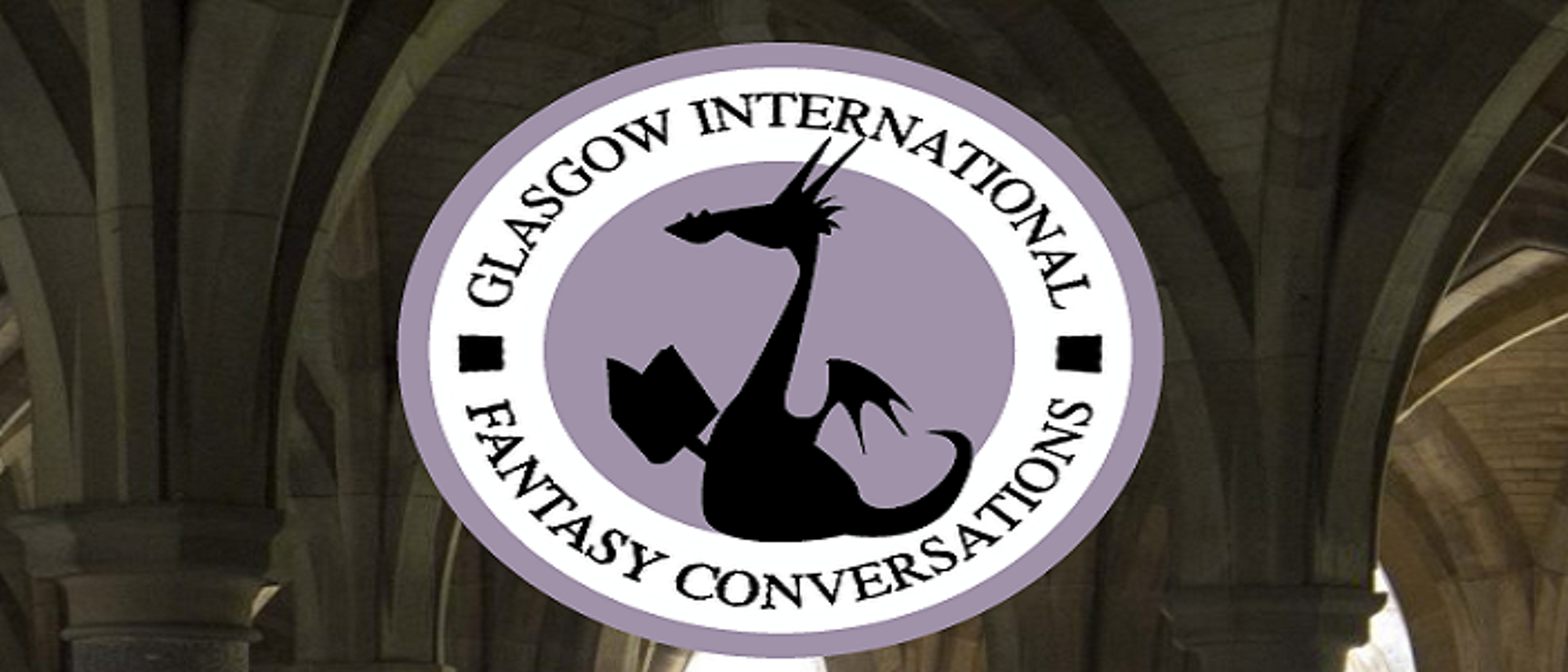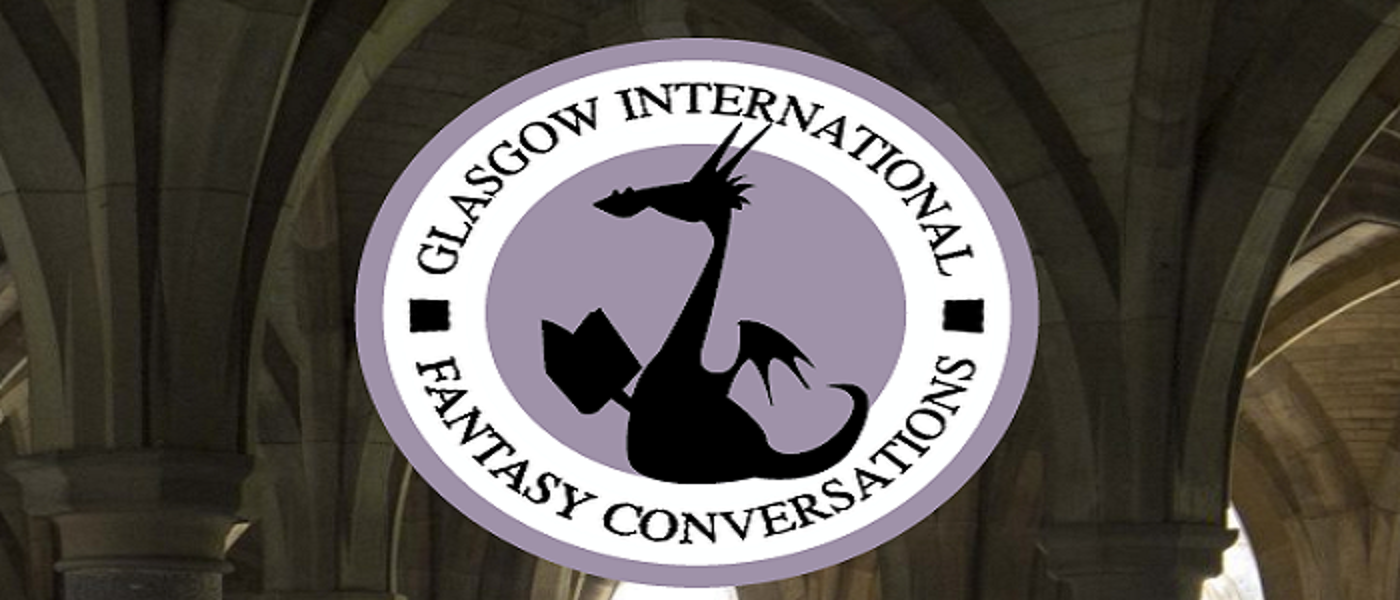Chair: Will Tattersdill
Deputy Chair/Events: Grace A.T. Worm
Accessibility and Diversity officer: Joseph Paolantonacci
Communications officer: Hollie Willis
MLitt Liason: Lorna Ross
Programming: Ane B. Ruiz-Lejarcegui
Social Media officer: Lea Warren
GIFCon Committee Bios

Ane B. Ruiz-Lejarcegui (she/her) is a 3rd year PhD researcher and member of the REWEST research group at the University of the Basque Country (Spain) and, currently, a visiting PGR at the University of Glasgow. Her thesis studies posthuman consciousness and power asymmetries in contemporary American space opera from narratological and critical posthumanist perspectives. She has previously organised conferences on Myth in the Arts and chaired another on Critical Animal Studies. Her research interests include SFF, posthumanism, transhumanism, cognitive narratology and H.G. Wells. Do not mention Stargate or she might bore you to death.

Grace Ann Thomas Worm (she/they) is still limping towards the end of her PhD on Female Fantasy in Tamora Pierce's fantasy world of Tortall at the University of Glasgow where she runs the Intersectional Fantastika reading group, is Vice Editor for the student journal Mapping the Impossible, and the Headquarters Officer for the Centre for Fantasy and the Fantastic and moderator of its Discord server. Grace is an English Literature International Bachelorette accredited secondary teacher who has taught across the U.S. This is her fifth GIFCon. She won't shut up about video games, so take pity and talk to her about them.

Hollie Willis is a 2nd-year PhD student at the University of Glasgow, and is part of the Centre for Hollie Willis is a 3rd-year PhD student at the University of Glasgow. Her thesis focuses on representations of funerary rites in contemporary fantasy literature in the context of the death positivity movement. Her research interests also include the Arctic Gothic, cannibalism, and all things fantastical. She was the Social Media officer for GIFCon 2024.

Joseph Paolantonacci (He/They) is a PhD student in Film & Television studies at the University of Glasgow (UofG), in charge of Accessibility in GIFCon 2025. He completed an MA in Film studies at Sorbonne University (France) and an MLitt in Fantasy at UofG. His Master’s dissertations respectively focused on the Korean vampire film Thirst (2009), and on dark fantasy. His thesis focuses on gender and sexuality in fantasy through The Witcher franchise. He is interested in Queer studies, Film history, Medievalism, Fantasy, and Comparative literature. Since year 2024-2025, he started teaching Film & TV, French culture, and Comparative literature at UofG.

Lea Warren is a first year PhD student at the University of Glasgow focusing on collaborative fantasy fiction, fan studies, and roleplay in Emily Bronte’s ‘Gondal Notebook’ manuscript. Lea has previously worked in two publishing houses, has over six years of marketing experience, and after achieving her MLitt in Fantasy at Glasgow in 2022 stayed on staff with the School of Critical Studies as a postgraduate administrator. When Lea is not working in her administrative role, working on her thesis, or assisting with GIFCon, she can usually be found working on one of her three novels-in-progress, wandering the city with her husband and chaotic Collie-mix, or exploring the countryside in her ambition to become a woodland witch.

Lorna Ross (she/her)is a first-year part-time student studying on Glasgow University’s Fantasy MLitt programme. She has completed a MA English Literature degree from Edinburgh University where she developed research interests in fairy tales, the gothic, queer theory and medievalism. Her Undergraduate research specialised in understanding representations of femininity and female homosocial relationships through the Bluebeard fairy tale intertext. As a queer woman and lover of queer fantasy, she is very excited to be involved in GifCon 2025.

Will Tattersdill (he/him) is Senior Lecturer in Contemporary Fantasy at Glasgow University and Chair of GIFcon. He writes and teaches about dinosaurs, magazines, science, alternate history, worldbuilding, Star Trek, polar exploration, and choose-your-own adventure books, and is currently editing the short stories of H. G. Wells for Oxford World's Classics.
GIFCon Volunteers
GIFCon could not run without volunteers, who help monitor social media, deal with Zoom headaches so you don't have to, chair panels, and help keep GIFCon running. From everyone on the GIFCon 2025 committee, thank you to all our wonderful volunteers this year:
Alexis Lothian
Caleb Berk
Lilly Golich
Makayla Widger
Meganne Rizk
Mercury Natis
Dr Matthew Sangster
Rachel England
Rebecca Gault
Reese Reynolds
Sam Tegtmeyer
Saige Severin
Stephen (Steve) Welsh



















